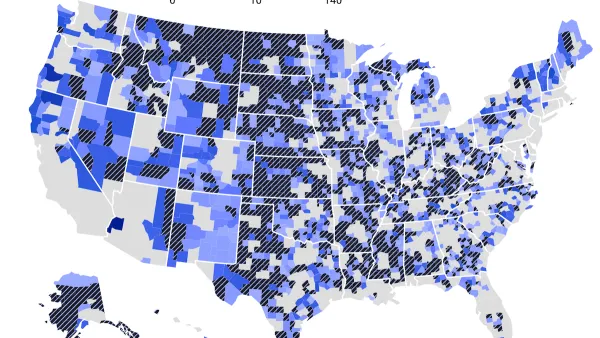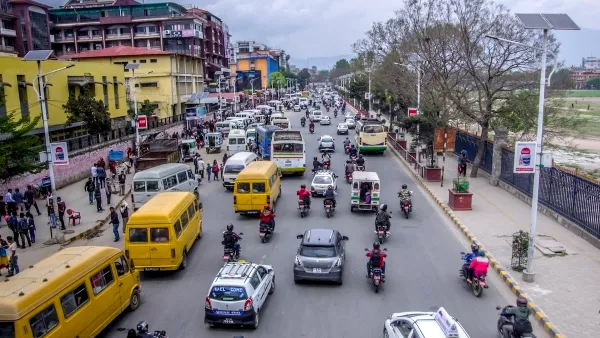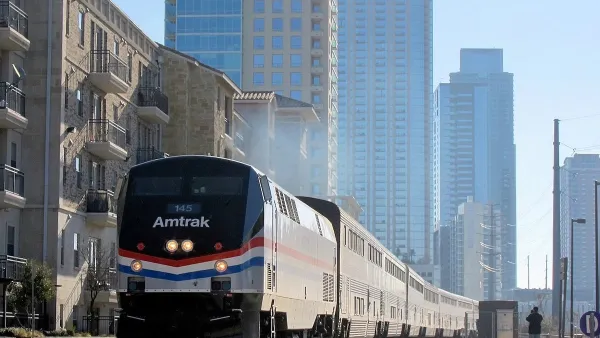Kirk Kardashian examines the headwinds confronting the much-hyped, but poorly selling, E.V. industry in the aftermath of a disappointing year. Meanwhile California, New York and six other states have announced plans to help energize sales.
Despite substantial government and private sector investment, the 45,000 in annual electric car sales in the U.S. lags far below the Obama administration's goal of one million vehicles sold by 2015. Kardashian identifies the underlying problem with electric vehicles: "the cost and ineffectiveness of their batteries."
"Meanwhile, gasoline-powered cars are becoming more efficient all the time," he adds." That’s good for the environment and consumers, but probably frustrating for E.V. engineers, as their central competition—internal-combustion engines—is better funded, improving quickly, and supported by a hundred and sixty-eight thousand quick-charge spots known as gas stations."
Last week, a group of eight states announced a partnership to help improve E.V. infrastructure and boost sales. According to Matthew L. Wald, "The states, which represent more than a quarter of the national car market, said they would seek to develop charging stations that all took the same form of payment, simplify rules for installing chargers and set building codes and other regulations to require the stations at workplaces, multifamily residences and at other places," with the goal of selling 3.3 million zero-emission vehicles by 2025.
FULL STORY: WHY ELECTRIC VEHICLES HAVE STALLED

Planetizen Federal Action Tracker
A weekly monitor of how Trump’s orders and actions are impacting planners and planning in America.

Restaurant Patios Were a Pandemic Win — Why Were They so Hard to Keep?
Social distancing requirements and changes in travel patterns prompted cities to pilot new uses for street and sidewalk space. Then it got complicated.

Map: Where Senate Republicans Want to Sell Your Public Lands
For public land advocates, the Senate Republicans’ proposal to sell millions of acres of public land in the West is “the biggest fight of their careers.”

Maui's Vacation Rental Debate Turns Ugly
Verbal attacks, misinformation campaigns and fistfights plague a high-stakes debate to convert thousands of vacation rentals into long-term housing.

San Francisco Suspends Traffic Calming Amidst Record Deaths
Citing “a challenging fiscal landscape,” the city will cease the program on the heels of 42 traffic deaths, including 24 pedestrians.

California Homeless Arrests, Citations Spike After Ruling
An investigation reveals that anti-homeless actions increased up to 500% after Grants Pass v. Johnson — even in cities claiming no policy change.
Urban Design for Planners 1: Software Tools
This six-course series explores essential urban design concepts using open source software and equips planners with the tools they need to participate fully in the urban design process.
Planning for Universal Design
Learn the tools for implementing Universal Design in planning regulations.
Heyer Gruel & Associates PA
JM Goldson LLC
Custer County Colorado
City of Camden Redevelopment Agency
City of Astoria
Transportation Research & Education Center (TREC) at Portland State University
Camden Redevelopment Agency
City of Claremont
Municipality of Princeton (NJ)





























